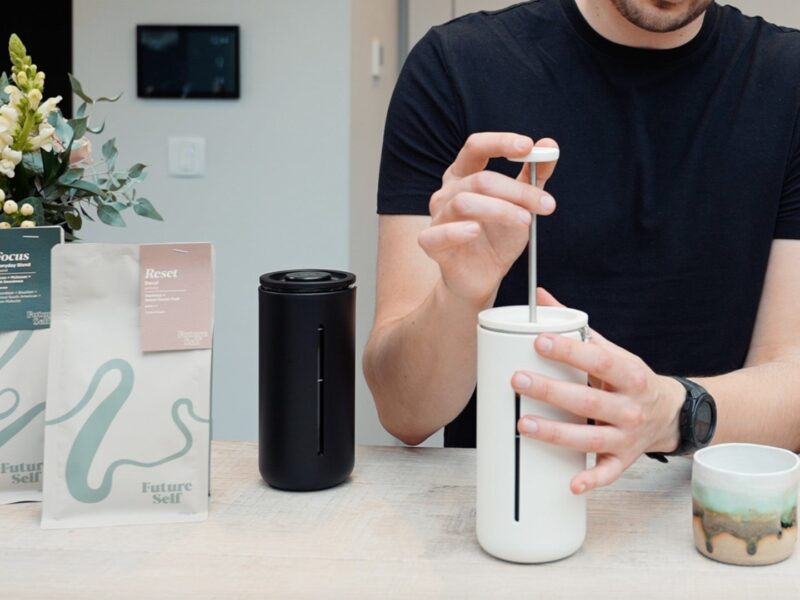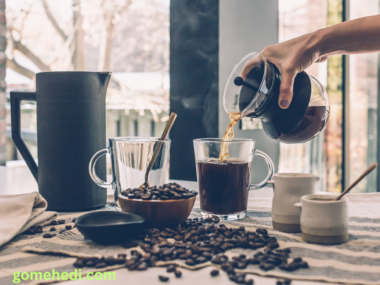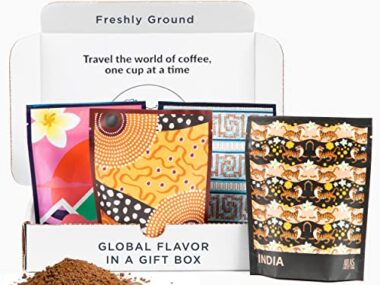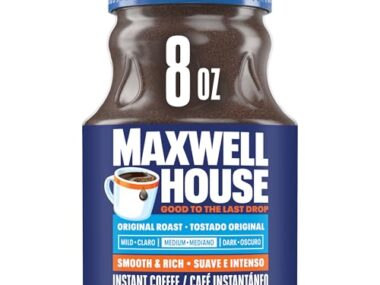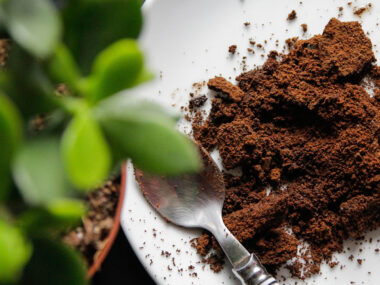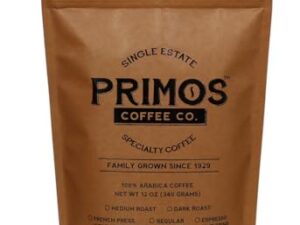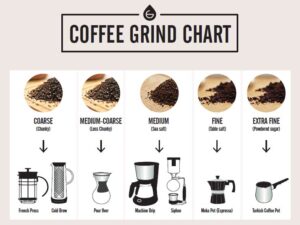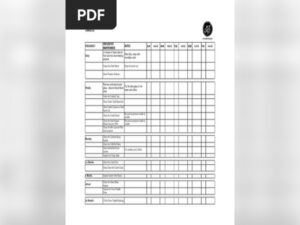Yes, you can use regular ground coffee for French Press. But it might not be ideal.
Regular ground coffee is often too fine for a French Press, which works best with coarse grounds. French Press brewing is loved for its rich, bold flavor. But using the wrong coffee grind can affect the taste. Regular ground coffee, common in drip machines, is finer than what French Press needs.
Fine grinds can lead to over-extraction, making your coffee bitter. They also clog the French Press filter, resulting in a murky brew. Coarse ground coffee allows water to flow smoothly, extracting just the right flavor. Understanding the difference can elevate your coffee experience. This guide explores why grind size matters and how to get the perfect brew. Discover tips for choosing the best coffee for your French Press. Enjoy a cup that truly satisfies your taste buds.
Credit: www.batchcoffee.co.uk
Coffee Grind Basics
Using a French Press can be a delightful way to enjoy coffee. But can you use regular ground coffee for it? Understanding coffee grind basics is essential. Different brewing methods require different grind sizes. This ensures the right flavor and extraction. Let’s explore the essentials of coffee grind sizes and types of coffee grinds.
Grind Sizes
Grind size plays a crucial role in coffee preparation. It’s all about how fine or coarse the coffee grounds are. The grind size affects the flavor and strength of your coffee. Here’s a quick breakdown:
-
Extra Coarse: Resembles peppercorns. Ideal for cold brew.
-
Coarse: Similar to sea salt. Perfect for French Press.
-
Medium-Coarse: Looks like rough sand. Good for Chemex.
-
Medium: Feels like regular sand. Suited for drip coffee makers.
-
Fine: Texture of table salt. Best for espresso machines.
-
Extra Fine: Almost powdery. Used for Turkish coffee.
Choosing the right grind size ensures optimal flavor extraction. For a French Press, a coarse grind is recommended. This prevents over-extraction and offers a rich, full-bodied taste. Using regular ground coffee, often medium, might lead to a bitter brew.
Types Of Coffee Grinds
Different coffee grinds cater to various brewing methods. Understanding each type helps you select the best for your brew:
|
Grind Type |
Description |
Best For |
|---|---|---|
|
Extra Coarse |
Large, chunky pieces |
Cold Brew |
|
Coarse |
Similar to sea salt |
French Press |
|
Medium-Coarse |
Grainy texture |
Chemex |
|
Medium |
Consistent sand-like texture |
Drip Coffee Makers |
|
Fine |
Feels like table salt |
Espresso Machines |
|
Extra Fine |
Powdery, flour-like |
Turkish Coffee |
Regular ground coffee is typically medium. Using it for a French Press can cause issues. It might lead to over-extraction. This results in a bitter taste. Opting for the right grind enhances your coffee experience. A coarse grind suits the French Press best. It allows for smooth plunging and a balanced flavor profile.
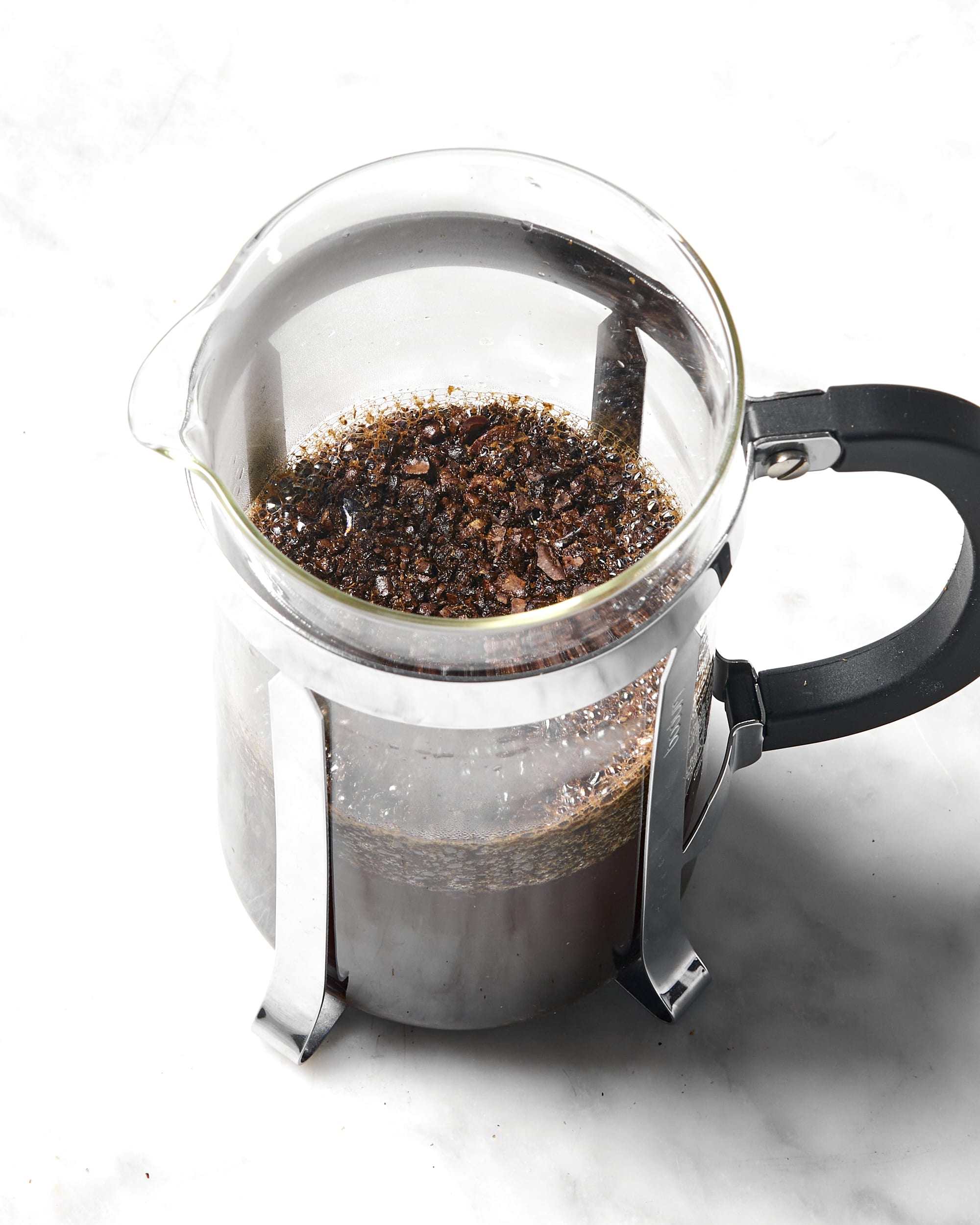
Credit: www.thekitchn.com
French Press Method
The French Press method is a popular way to brew coffee. It is known for its simplicity and rich flavor. Many coffee lovers wonder if they can use regular ground coffee for a French Press. The answer is yes, but there are some things to keep in mind. This method involves steeping coffee grounds in hot water, then pressing them down with a plunger. It is a straightforward process that can produce a delicious cup of coffee when done right.
Brewing Process
Brewing coffee with a French Press is quite easy. Here’s a simple guide to help you:
-
Start by boiling water. Let it cool for about 30 seconds after boiling.
-
Measure your coffee. Use about 2 tablespoons of coffee for every 6 ounces of water.
-
Add the coffee grounds to the French Press.
-
Pour the hot water over the coffee. Stir gently to mix.
-
Place the lid on the French Press. Let the coffee steep for about 4 minutes.
-
Slowly press the plunger down. This separates the grounds from the brewed coffee.
-
Pour the coffee into your cup and enjoy.
Using regular ground coffee is possible, but it’s ideal to use a coarser grind. This prevents the coffee from becoming too bitter or muddy. If you use pre-ground coffee, you may find some sediment in your cup. It’s best to experiment with the amount and grind size to suit your taste.
Key Features
The French Press method has several key features that make it unique:
-
Rich Flavor: Since the coffee grounds are fully immersed in water, the flavor is bold and full-bodied.
-
No Filters Needed: Unlike other methods, the French Press doesn’t require paper filters. This retains the natural oils from the coffee beans, enhancing the taste.
-
Simple Equipment: A French Press is all you need. No fancy machines or gadgets are necessary.
-
Control Over Brewing: You can adjust the steeping time and coffee-to-water ratio to suit your preference.
Despite its simplicity, the French Press can produce a high-quality coffee experience. Regular ground coffee can work, but using a coarser grind is recommended. This ensures a smoother cup with less sediment. The French Press offers a unique blend of convenience and quality, making it a favorite among coffee enthusiasts.
Regular Ground Coffee
When making coffee, the choice of grounds can affect the flavor and texture of the brew. Regular ground coffee is a common choice for many coffee drinkers. But can you use it for a French press? Understanding what regular ground coffee is and how it’s commonly used can help you decide if it’s suitable for your French press.
What It Is
Regular ground coffee refers to coffee beans that have been ground to a medium consistency. This size is typically used for drip coffee makers. The grind is coarser than espresso but finer than what is ideal for a French press.
Here are some key characteristics of regular ground coffee:
-
Medium grind size
-
Suitable for drip coffee machines
-
Moderate brewing time
The grind size is crucial for brewing. It affects how water extracts flavors from the coffee. A medium grind is versatile and works well in different brewing methods.
|
Grind Size |
Brewing Method |
|---|---|
|
Coarse |
French Press, Cold Brew |
|
Medium |
Drip Coffee Makers |
|
Fine |
Espresso Machines |
Regular ground coffee is a staple in many households. It’s a convenient option for those using automatic coffee makers.
Common Uses
Regular ground coffee is most often used in drip coffee makers. This method is popular due to its simplicity and consistency. You add water, place the coffee in a filter, and let the machine do the work.
Other common uses include:
-
Automatic drip machines
-
Pour-over setups
-
Coffee percolators
Its medium grind size allows it to work well with these methods. The water flows smoothly through the coffee, extracting a balanced flavor.
Regular ground coffee can also be used in some pour-over methods. It offers a balanced extraction and is easy to find in stores. Many brands offer pre-ground coffee, making it a convenient choice.
While it might not be ideal for a French press, some people still use it. The finer grind can lead to sediment in the cup. But it will still produce a flavorful brew.
Overall, regular ground coffee is versatile and accessible. It’s a great option for those seeking a quick and easy brew.

Credit: grosche.ca
Compatibility With French Press
Using regular ground coffee in a French press can be a point of debate. The French press is known for its ability to brew rich, flavorful coffee. Its compatibility with different grind sizes can affect the taste and brewing time. Regular ground coffee is finer compared to the coarse grind typically recommended for a French press. This difference can change how your coffee turns out. Exploring these effects can help you decide if regular ground coffee is a good fit for your French press experience.
Taste Impact
Regular ground coffee can significantly alter the taste profile of your French press brew. The finer grind may lead to over-extraction. This can make your coffee taste bitter or harsh. Here are some key aspects to consider:
-
Bitterness: Finer grounds expose more surface area to hot water, resulting in a stronger, sometimes bitter taste.
-
Strength: Expect a more intense flavor with regular ground coffee. This may appeal to those who prefer robust coffee.
-
Smoothness: A coarse grind typically offers a smoother taste. Regular ground coffee can compromise this smoothness.
Understanding these factors can help you adjust your brewing method. You might experiment with ratios or brewing time to balance the taste.
|
Grind Type |
Taste Characteristics |
|---|---|
|
Regular Ground |
Strong, Bitter, Intense |
|
Coarse Ground |
Smooth, Mild, Balanced |
Brewing Time
The grind size also influences brewing time in a French press. Regular ground coffee can alter this crucial aspect:
-
Faster Extraction: Finer grounds extract flavors quickly, reducing brewing time but risking over-extraction.
-
Consistency: With regular ground coffee, the consistency of brewing time may vary, affecting taste.
-
Adjustments: You might need to experiment with shorter brewing durations to avoid bitterness.
Typically, a French press requires a brewing time of about 4 minutes. With regular ground coffee, you might find 2 to 3 minutes more suitable. This helps avoid overly strong or bitter coffee.
Consider creating a brew schedule. This way, you can experiment with different times to find your perfect cup. A shorter brewing time can result in a balanced flavor. This can be more pleasant for those sensitive to bitterness.
Benefits Of Coarse Grind
Many coffee lovers wonder if they can use regular ground coffee in a French press. The answer is yes, but using a coarse grind offers distinct benefits. Coarse grind is often recommended for French press brewing because it enhances flavor and clarity. Regular ground coffee tends to be finer, which can lead to over-extraction and a muddled brew. By choosing a coarse grind, you can enjoy a rich, flavorful cup without the unwanted grit.
Flavor Extraction
A French press uses immersion brewing, where coffee grounds steep in water. This method allows for more control over flavor extraction. With a coarse grind, the extraction process is slower and more even. The larger coffee particles release their flavors gradually, resulting in a balanced and nuanced taste. Here’s why coarse grind is preferred:
-
Even Extraction: Coarse grind prevents over-extraction, which can lead to bitterness.
-
Enhanced Aromas: Larger particles help preserve aromatic compounds.
-
Rich Flavor: The slow brewing process draws out deep and complex flavors.
A table below summarizes the advantages of coarse grind in flavor extraction:
|
Coarse Grind Benefit |
Description |
|---|---|
|
Even Extraction |
Prevents bitterness by slowing down the brewing process. |
|
Enhanced Aromas |
Preserves aromatic compounds for a fragrant brew. |
|
Rich Flavor |
Draws out complex flavors for a satisfying taste. |
Clarity Of Brew
Clarity is crucial in a French press brew. Using a coarse grind helps achieve a cleaner cup. Finer grounds can slip through the mesh filter, resulting in a cloudy appearance and sediment at the bottom. Coarse grind minimizes this issue. It ensures that the coffee grounds stay put, leaving you with a clear, sediment-free brew. Here are some key points about clarity:
-
Reduced Sediment: Coarse particles are less likely to escape the filter.
-
Bright Appearance: A clear brew is visually appealing.
-
Smooth Texture: Enjoy a smooth drink without gritty residue.
Below is a comparison of clarity benefits with a coarse grind:
|
Clarity Benefit |
Description |
|---|---|
|
Reduced Sediment |
Minimizes particles in your cup for a cleaner brew. |
|
Bright Appearance |
Ensures a visually appealing coffee experience. |
|
Smooth Texture |
Offers a smooth drinking experience without grit. |
Using Regular Coffee
French press coffee lovers often wonder if they can use regular ground coffee with this brewing method. The answer is yes, but it comes with some considerations. Regular ground coffee is usually finer than the coarse grind recommended for a French press. This difference impacts the brewing process, but adjustments can make it work. Understanding these adjustments and potential challenges can help you enjoy a flavorful cup of coffee.
Adjustments Needed
Using regular ground coffee in a French press requires a few changes to the traditional approach. These adjustments can enhance the flavor and prevent issues like over-extraction.
Consider these tips:
-
Brewing Time: Reduce the brewing time to avoid bitterness. A finer grind needs less time to extract flavors.
-
Water Temperature: Use slightly cooler water, around 195°F (90°C), to slow down extraction.
-
Coffee-to-Water Ratio: Adjust the ratio to balance the stronger flavor of finer grinds. Start with 1:15 and tweak as needed.
Here’s a quick comparison table:
|
Aspect |
Regular Grounds |
Coarse Grounds |
|---|---|---|
|
Grind Size |
Fine |
Coarse |
|
Brewing Time |
Shorter |
Longer |
|
Water Temperature |
195°F (90°C) |
200°F (93°C) |
These adjustments help you achieve a balanced and enjoyable cup of coffee.
Potential Challenges
Using regular ground coffee in a French press can present certain challenges. Being aware of these issues helps you navigate them effectively.
Common challenges include:
-
Sediment: Finer grounds increase sediment in your cup. This can affect texture and taste.
-
Over-Extraction: Regular grounds extract faster. This can lead to a bitter flavor if not monitored.
-
Clogging: Fine grounds may clog the French press filter, making it hard to press down.
To address these challenges:
-
Consider a double filtration method. Use a paper filter along with the metal one.
-
Experiment with grind sizes if you have a grinder at home. Aim for a medium-coarse grind.
-
Regularly clean your French press to prevent clogs and ensure smooth operation.
Understanding these potential challenges helps you make informed decisions. This leads to a more enjoyable coffee experience.
Tips For Best Results
Using regular ground coffee for a French Press can lead to a delightful brew, but achieving the best results requires some attention to detail. The French Press method is known for producing a rich and full-bodied coffee. However, it’s important to understand how factors like water temperature and brewing duration can impact the final taste. By following specific guidelines, you can enhance your French Press experience and enjoy a perfect cup every time.
Water Temperature
Water temperature plays a crucial role in extracting flavors from coffee grounds. For French Press, the ideal temperature is between 195°F and 205°F. Too hot, and the coffee may taste bitter. Too cold, and it might be weak and under-extracted.
Here’s how you can manage the perfect water temperature:
-
Use a thermometer to check the temperature.
-
Boil water and allow it to sit for 30 seconds before pouring.
-
Consider using a kettle with a temperature setting.
Below is a simple temperature guide:
|
Temperature (°F) |
Flavor Profile |
|---|---|
|
Below 195°F |
Weak, under-extracted |
|
195°F – 205°F |
Balanced, flavorful |
|
Above 205°F |
Bitter, over-extracted |
Remember, achieving the right water temperature ensures a balanced extraction, highlighting the coffee’s natural flavors.
Brewing Duration
Timing is everything in brewing coffee with a French Press. The brewing duration affects the taste and aroma of your coffee.
Here’s how to master the timing:
-
Set a timer for four minutes.
-
Allow the coffee to steep without disturbance.
-
Experiment with slightly longer or shorter durations to find your preference.
Consider the following brewing durations:
|
Duration (minutes) |
Flavor Profile |
|---|---|
|
3 minutes |
Light, mild |
|
4 minutes |
Full-bodied, balanced |
|
5 minutes |
Strong, bold |
A four-minute brew typically offers the best balance of flavor. Adjusting the time slightly allows for personal taste preferences.
Mastering both water temperature and brewing duration ensures a delightful coffee experience with regular ground coffee in a French Press.
Alternatives To Regular Coffee
Many coffee lovers wonder if they can use regular ground coffee in a French press. The answer is yes, but it may not give you the best flavor or texture. Regular ground coffee is often too fine for the French press, which can lead to a bitter taste or a sludgy texture. If you’re seeking a richer experience, consider alternatives to regular coffee. These options can elevate your brew and offer a more delightful cup.
Specialty Coffees
Specialty coffees are crafted to provide unique flavors and aromas. They often come from single-origin sources, showcasing distinct characteristics. These coffees are grown in specific regions known for quality beans. Here are a few types to consider:
-
Arabica: Known for its smooth taste and aromatic qualities.
-
Robusta: Offers a stronger, more bitter flavor.
-
Single-Origin: Highlights flavors unique to the region.
Specialty coffees are typically processed with care, ensuring high quality. They often have certifications like organic or fair trade. This guarantees ethical practices and premium beans. Here’s a comparison table for quick reference:
|
Type |
Flavor Profile |
Special Qualities |
|---|---|---|
|
Arabica |
Smooth, Aromatic |
High-Quality Beans |
|
Robusta |
Strong, Bitter |
More Caffeine |
|
Single-Origin |
Unique to Region |
Distinct Characteristics |
Choosing specialty coffees can enhance your French press experience. They bring depth and complexity to your brew, making each sip memorable.
Pre-ground Options
Pre-ground coffee is convenient and widely available. It saves time but may not always offer the best taste for French press. Here are some options to consider:
-
Coarse Grind: Ideal for French press, prevents bitter taste.
-
Medium Grind: Suitable for those who prefer a richer flavor.
-
Flavored Coffee: Adds a unique twist to your brew.
Pre-ground options can vary in quality. It’s important to choose brands known for consistency. Look for packaging that indicates freshness. Here’s a quick guide to pre-ground choices:
|
Type |
Best Use |
Flavor Profile |
|---|---|---|
|
Coarse Grind |
French Press |
Balanced, Smooth |
|
Medium Grind |
Versatile Brewing |
Rich, Full-bodied |
|
Flavored Coffee |
Unique Brews |
Varied, Sweet |
Opting for pre-ground coffee tailored for French press can improve your brew. It offers simplicity and flavor without the hassle of grinding beans.
Frequently Asked Questions
Can You Use Regular Ground Coffee With A French Press?
Yes, you can use regular ground coffee in a French press. For best results, use coarse grounds. Fine grounds can clog the filter and create sediment in your cup. Coarse grounds enhance flavor extraction and make cleanup easier. Enjoy a rich and full-bodied coffee experience with a French press.
Can You Use Folgers Ground Coffee In A French Press?
Yes, you can use Folgers ground coffee in a French press. For best results, ensure the grind is coarse. Fine grinds can clog the filter and affect the flavor. Adjust steeping time and water temperature for your preferred taste. Enjoy a rich, flavorful coffee experience with Folgers.
Can I Use Ground Coffee As Instant Coffee?
No, ground coffee cannot be used as instant coffee. Ground coffee requires brewing, while instant coffee dissolves in hot water. Using ground coffee directly will leave sediments and won’t dissolve completely. For instant coffee effects, choose instant coffee powders specifically made for quick preparation without brewing.
Can You Use Regular Ground Coffee For Pour Over?
Yes, you can use regular ground coffee for pour over. For best results, use medium-coarse grind coffee. This grind size allows for optimal extraction and better flavor. Adjust the grind size slightly to suit your taste preferences. Enjoy a rich and aromatic pour over coffee experience.
Conclusion
Using regular ground coffee in a French Press is possible. But, results might vary. Coarser coffee grounds work best for this method. They prevent clogging and over-extraction. Regular coffee can make the brew bitter. Experiment with different grind sizes. Adjust brewing time for better flavor.
Each coffee type offers unique tastes. Explore and find what you enjoy most. Remember, coffee is personal. What matters is your taste preference. Enjoy your coffee journey.
